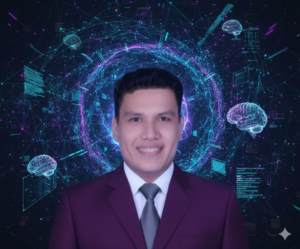![]()

Opinion by Daeng Supri Yanto SH MH
“Elon Musk’s prediction regarding a future world of work fully automated by robots and artificial intelligence (AI) within the next decade or two, while seemingly utopian, demands a critical and in-depth examination. This statement, made at a prestigious investment forum, is not merely futuristic speculation, but rather a projection that challenges the socio-economic foundations we have long adhered to.
Musk, as an innovator who has revolutionized the automotive and space exploration industries, has a proven track record of realizing disruptive visions. However, in the context of total automation, we need to consider implications that extend beyond mere production efficiency and increased productivity.
The fundamental question that arises is: what will happen to the millions, even billions, of people who lose their jobs due to automation? Are we prepared to face the social consequences of mass unemployment, increasingly severe economic inequality, and potential social unrest?
Some argue that automation will unlock new opportunities in creative and innovative fields that cannot be replaced by machines. However, the transition to a creativity- and innovation-based economy requires significant investment in education, training, and skills development. Moreover, not everyone has the talent or interest in those fields.
Therefore, a comprehensive and multidimensional solution is needed to address the challenges of automation. One option often proposed is the implementation of a universal basic income (UBI), where every citizen receives a regular cash payment without conditions. UBI can provide a social safety net for those who lose their jobs, as well as encourage consumption and economic growth.
However, UBI also has potential negative impacts, such as inflation, decreased work motivation, and dependence on the government. Therefore, the implementation of UBI must be done carefully and gradually, considering the specific social, economic, and political context.
In addition to UBI, structural reforms are needed in education, taxation, and labor regulation systems. The education system must be designed to produce graduates with skills relevant to the future labor market, such as critical thinking, problem-solving, creativity, and collaboration. The tax system must be reformed to reduce income inequality and fund social programs. Labor regulations must be adjusted to protect workers’ rights in the age of automation.
Musk’s prediction about a future without work is both a warning and an opportunity. If we can manage the transition to automation wisely and responsibly, we can create a more prosperous, just, and sustainable society. However, if we fail, we risk creating a society that is divided, unstable, and full of conflict.”




